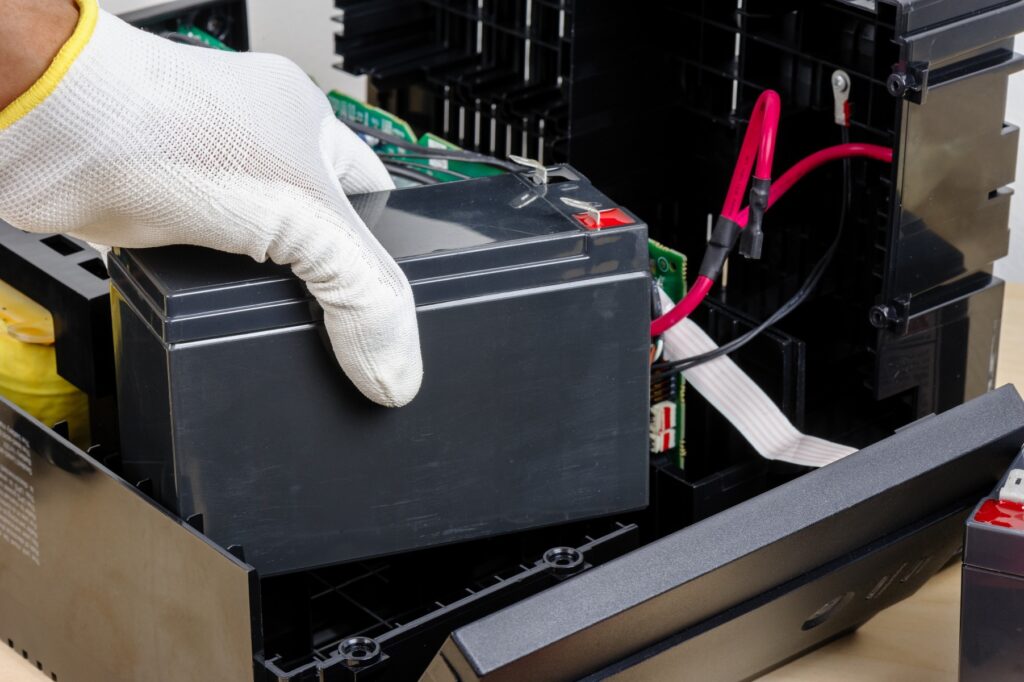Identifying symptoms of UPS (Uninterruptible Power Supply) battery failure is crucial for maintaining the reliability of backup power systems. Here are some common symptoms that may indicate UPS power battery failure.
- Alarm Notifications: Most modern UPS systems are equipped with audible alarms or visual indicators to alert users of potential battery problems. These alarms may include continuous beeping, flashing lights, or error messages displayed on the UPS unit or connected monitoring software.
- Reduced Runtime: A significant decrease in the runtime of the UPS system during power outages can be a sign of battery deterioration or failure. If the UPS battery is unable to sustain the connected load for its expected duration, it may indicate a loss of capacity or efficiency.
- Frequent Self-Tests: UPS systems often perform periodic self-tests to assess the condition of the battery and other components. If the UPS repeatedly fails these self-tests or reports errors during the testing process, it could indicate battery issues such as high internal resistance or insufficient capacity.
- Overheating: Excessive heat generation within the UPS enclosure or around the battery module can be a symptom of battery failure or degradation. Overheating may result from internal resistance within the battery cells, which can increase as the battery ages or suffers damage.
- Swollen or Leaking Batteries: Physical signs of battery damage such as swelling, bulging, or leakage of electrolyte indicate serious battery issues that require immediate attention. Swollen or leaking batteries may be caused by internal pressure buildup, electrolyte leakage, or thermal runaway.
- Corrosion or Buildup: Corrosion or buildup of residue around battery terminals or connectors can interfere with electrical contact and conductivity, leading to poor battery performance or failure. It may indicate issues such as poor battery maintenance, overcharging, or exposure to environmental contaminants.
- Unreliable Backup Power: If the UPS fails to provide reliable backup power during actual power outages or load tests, it suggests that the battery may not be functioning correctly. Unreliable backup power can result from various battery-related issues, including insufficient capacity, high internal resistance, or aging.
- Age and Maintenance History: The age of the UPS battery and its maintenance history are important factors in assessing the likelihood of battery failure. Batteries that have exceeded their expected service life or have not been properly maintained are more prone to failure and should be closely monitored or replaced proactively.
If any of these symptoms are observed, it’s essential to diagnose and address the underlying cause promptly to prevent potential disruptions to critical power supply systems. Regular battery testing, maintenance, and replacement as needed are essential practices for ensuring the reliability and effectiveness of UPS backup power solutions.


